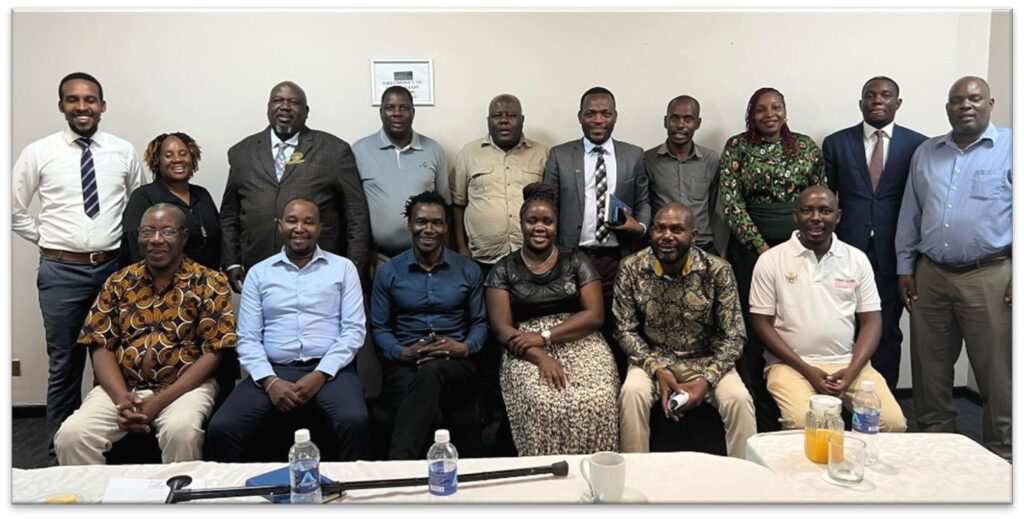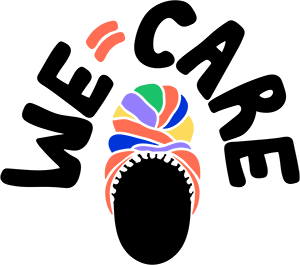Embracing change: A personal transformation in the fight for gender equality
Let me take you back to 2020, when I joined the Women’s Economic Empowerment and Care (WE-Care) project. At first, I didn’t fully understand the project, not because I wasn’t interested, but because of an internal cultural conflict I struggled with. I was raised in a deeply patriarchal culture at the foot of the Nandi Hills. Certain norms and behaviors were so ingrained in me that I considered them natural. Some made sense, while others simply dictated how I was expected to behave. My community wasn’t just patriarchal; it embodied patriarchy. While Africa is often described as a patriarchal continent, my community was an extreme example. I didn’t grow up seeing women in leadership or even speaking out.
My upbringing was a blend of strict cultural and Christian values, which made navigating gender issues even more complex. At times, my mother was very religious, while other times, my father was deeply cultural. So, I learned to find a balance, leaning into culture when it made sense and reconciling it with Christian teachings when I needed a different lens.
Then came 2020, and I was tasked with leading this gender-related project. I struggled internally and silently. This wasn’t an area I was used to. I had done very well in youth development and had spoken boldly about gender equality. But this project required me to speak to my own culture and challenge the deeply embedded roles I had grown up with, particularly around the redistribution of care work.
I was raised in a household of men; I don’t have a biological sister, so I understood the male world well. I knew how men thought, what was expected of them, and what boundaries they drew. In my home, it was normal for my mother and me to handle all the domestic work. It wasn’t strange to see my brothers not involved, even when guests were present. That was just how our culture had defined gender roles.
It took me six months to fully understand the WE-Care project. I spent that time analyzing my environment, reflecting on my cultural norms, and identifying opportunities I had missed simply because my culture had already decided that care work was “women’s work”. I wasn’t sure I would survive in the project because it meant challenging practices that were foundational to my upbringing. But I came to realize that these very norms were the barriers keeping women and girls from progressing.

I knew I had to reframe narratives—ones that men could relate to—so they could become agents of change in their own homes. I had to take bold steps, engaging married men, cultural leaders, religious leaders, and the local administration, all of whom were male. I had to learn their language. I had to take a backseat and observe their discussions to understand how they communicate with their partners about household changes.
As months turned into years, unpaid care work started to make sense to me. But a challenge remained: I’m a woman. And in my context, it really counts who is speaking, especially when addressing men on sensitive issues. Someone might say, “This isn’t a hard discussion,” but I’m telling you, where I come from, where the roles of men, women, boys, and girls are rigidly defined, this is no easy feat.
Engaging men in care work involves interrogating our cultural ways of life. It means initiating difficult conversations gently, safely, and progressively. It requires cultural sensitivity, tolerance, and listening, before you can analyze and find the right engagement approach. For a long time, this was my greatest struggle. But then came a breakthrough. After a proposal we submitted to the PMU, based on lessons from our 2024 learning review workshop, we were approved for a learning exchange visit to Zimbabwe to explore male engagement models.
We spent five days in Zimbabwe, hosted by Padare, who provided invaluable insights into male engagement. We met with Members of Parliament to understand how men can champion gender equality at the national level. We saw grassroots male champions leading discussions on change, and we engaged with civil society organizations and the Zimbabwe Gender Department to learn how they were engaging men across various levels. It was an eye-opening experience. What seemed easy for them was a profound learning experience for us, the Kenyan team. We picked up strategies, understood how to organize these discussions, and committed to applying them back home.
Looking back, I can confidently say this learning journey has shaped our way of working, not only within the project but also at a personal level. We now have clarity on how these components can be implemented in different contexts. We’ve tried, and we’ve seen the difference. None of this would have been possible without the support of the PMU, who invested in building our knowledge and capacity. This experience shows that the WE-Care project holds valuable resources that can be tapped into to foster change internally and externally.
Thank you for being part of this change in fostering gender equality through male engagement.
Written by Purity Jebor, Programme Officer for Gender Justice and Women’s Rights at Oxfam Kenya. Photo shows members of Zimbabwe’s Parliament (Padare Men) and Purity’s team after a productive peer learning session on male engagement with policymakers, held at the Rainbow Towers in Harare, March 2025.
